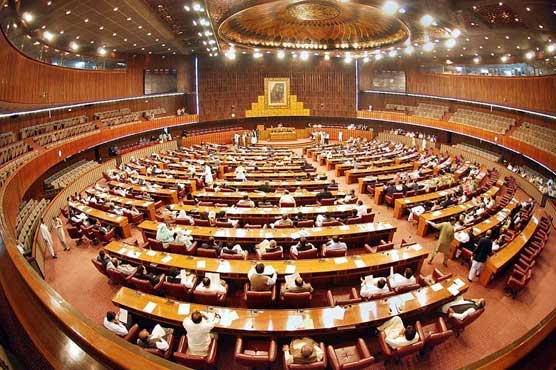By Muhammad Mohsin Iqbal
In democracies worldwide, the pivotal role of Parliament in scrutinizing and overseeing national security laws is fundamental to ensure the lawful, effective, and democratic functioning of government actions in the realm of national security. This article delves Ninto the specific mechanisms and diverse roles that parliaments play in overseeing national security, highlighting examples from various countries, with a particular focus
on the Pakistani experience.
Parliaments worldwide are responsible for passing, amending, or repealing national security laws. The legislative process involves thorough scrutiny and debate by parliamentarians before enactment, ensuring that laws are clear, proportionate, and necessary to address security challenges.
Post-enactment, parliaments retain the authority to review and amend national security laws, allowing for adjustments based on evolving circumstances, emerging threats, or the identification of unintended consequences.
Many parliamentary systems establish specialized committees dedicated to security and
intelligence matters. These committees conduct detailed examinations, hold hearings,
request information, and produce reports that contribute to informed decision-making on
national security policies and legislation.
Parliaments exercise control over the allocation of funds related to national security. By
scrutinizing and approving budgets for intelligence agencies and defense, they ensure
efficient resource utilization in accordance with legal and ethical standards.
Parliamentary sessions provide a platform for elected representatives to question
government officials about national security policies and actions. Debates allow for a
diversity of perspectives, contributing to public awareness and understanding.
Parliament plays a crucial role in safeguarding human rights while dealing with national
security issues. Through legislative processes and oversight mechanisms, parliament national security framework.
ensures that laws do not unduly infringe on individual rights and liberties. Parliament
holds the executive branch accountable for its actions in the realm of national security,
preventing abuses of power and ensuring government actions align with the rule of law.
In some systems, parliament may have the power to review specific executive decisions
related to national security, ensuring justification and compliance with legal standards.
In essence, parliamentary scrutiny and oversight of national security laws are
fundamental components of a democratic system. This process helps strike a balance
between the need for security and the protection of individual rights, ensuring
transparency, accountability, and actions in the best interests of the nation.
Conditions for effective parliamentary oversight of the security sector include clearly
defined constitutional and legal powers, customary practices, availability of resources
and expertise, and political will.
Parliaments utilize three common legal possibilities to obtain information from the
government: parliamentary debates, questions and interpellations, and parliamentary
inquiries. Specialized committees and ad hoc inquiries play a crucial role in supervising
government policy, offering detailed scrutiny of politically sensitive security issues.
These inquiries contribute to evaluating government policies and proposing necessary
redress or reorientation.
Committees of inquiry provide a positive political signal, offer detailed scrutiny of
security issues, and propose means of redress accepted by the entire house and the
government. Their composition, including the proportion of opposition members, is
crucial to the inquiry's outcome. Various parliamentary committees oversee the security
sector, including defense, foreign affairs, budget or finance, intelligence services,
industry and trade, science and technology, and interior committees.
Parliaments enhance transparency by releasing documents of strategic importance,
defense budgets, press releases, minutes of parliamentary meetings, publications
related to inquiries, annual reports on security services, and reports by ombudsmen or
auditors. Parliaments play a decisive role in approving bilateral agreements, ensuring
democratic oversight, and encouraging public involvement in countries where the
process of ratification.
Parliament's role in national security oversight is indispensable for upholding democratic
values, ensuring accountability, and balancing security needs with individual rights.
Robust parliamentary scrutiny contributes to a transparent, adaptive, and effective national security framework.




